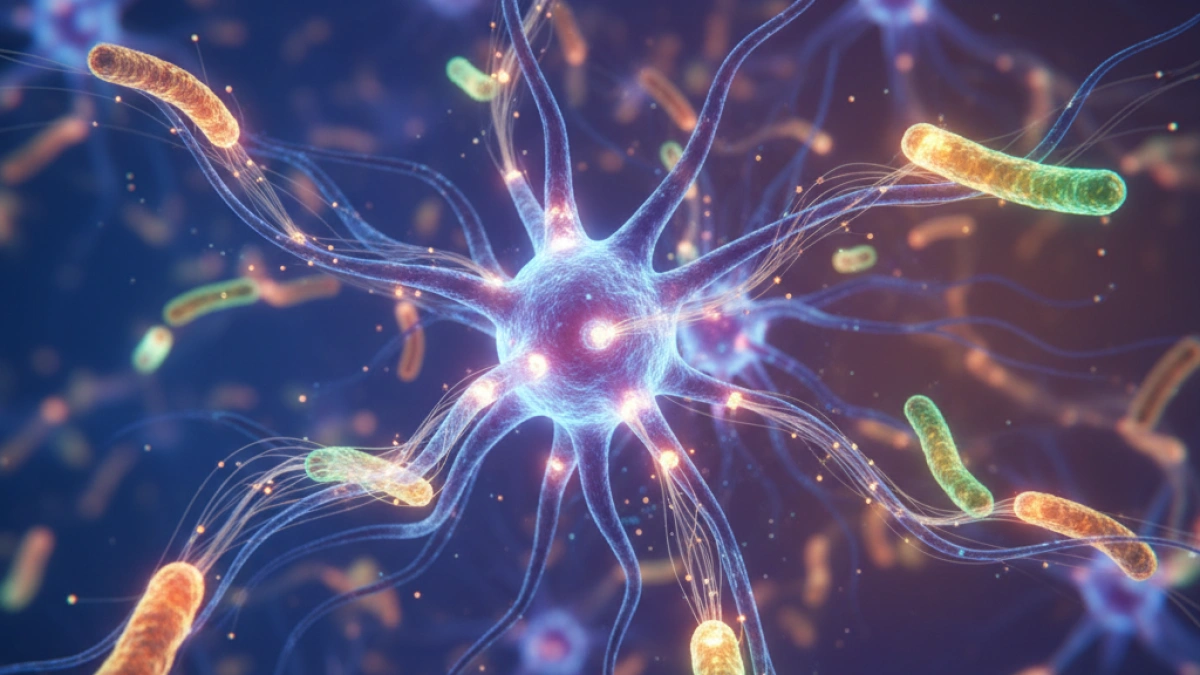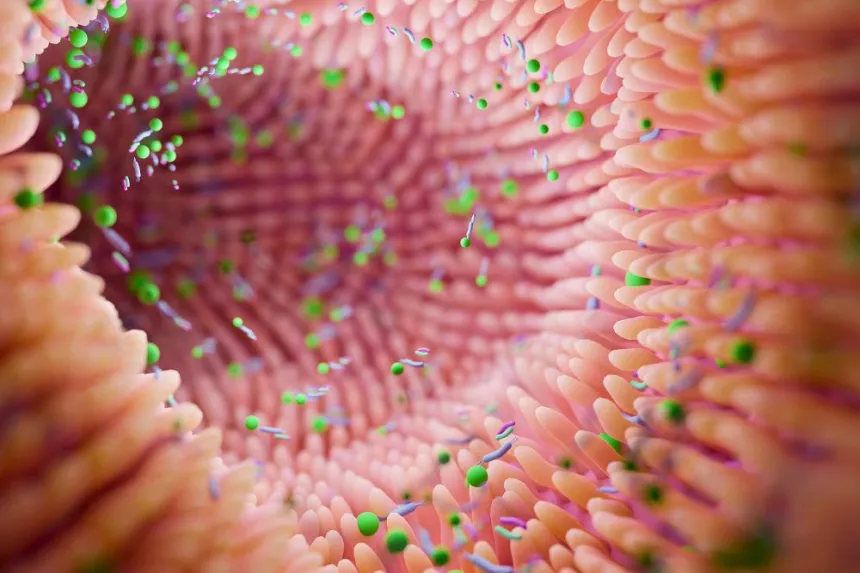Scientists demonstrate direct communication between gut bacteria and neurons.

Recent research reveals an astonishing finding that could transform the way we understand the interaction between the gut microbiome and the nervous system. A team of scientists from Complutense University of Madrid, in collaboration with the University of Turin, has demonstrated that the bacteria present in the gut can communicate directly with neurons, thereby opening new avenues in the field of therapies for brain health.
The Importance of the Gut Microbiome
The study, published in the journal Scientific Reports, indicates that the microbiota is not only relevant for digestive health, but also plays a crucial role in the function of the nervous and immune systems. Until now, the prevailing perception in the scientific community was that the influence of these bacteria on the brain occurred through indirect pathways, such as the immune system or blood circulation. However, this new research suggests a paradigm shift, proposing that bacteria may have the ability to "speak" directly to neurons.
Celia Herrera-Rincón, the principal investigator of the study, commented that this discovery implies that neurons and bacteria could communicate directly without the need for intermediaries. This is an advancement that could revolutionize the approach to numerous diseases affecting both the nervous system and overall health.
Innovative Method: The "Minibrain"
The research team achieved this discovery by developing a "minibrain" in the laboratory, consisting of a small neuronal organ created from neurons extracted from a rat's brain. The neurons were cultured under controlled conditions for 14 days, during which they formed connections that simulate the characteristics and functions of real brain tissue.
Read also
This minibrain can be visualized as a miniature computer network, where scientists applied the bacterium Lactiplantibacillus plantarum. This species, commonly found in the human microbiota, is usually found in fermented foods such as yogurt and pickles. Through the use of advanced microscopy and genetic analysis techniques, the researchers observed that the bacteria adhered firmly to the surface of the neurons without invading their interior.
The simple contact between Lactiplantibacillus plantarum and the neurons was sufficient to modify the electrical activity and gene expression of these nerve cells. This phenomenon can be understood as equivalent to activating new functions in a system by touching a screen, which resonates in key biological aspects such as neuronal plasticity, inflammation, or pathologies related to the nervous system.
Clinical Implications of the Finding
Juan Lombardo Hernández, the first author of the article, emphasized the relevance of these findings by stating that it is fascinating to think that neurons and bacteria, despite belonging to different biological kingdoms, could share a common bioelectric language based on ion channels and membrane potentials. This interaction suggests the existence of a shared code that would allow for a molecular conversation between distinct organisms.
Read also
Understanding this direct communication could have significant repercussions on how various diseases are approached and treated. Analyzing the gut microbiome represents one of the most complex challenges in modern biology, as it is estimated that the human gut harbors around 100 trillion bacteria. Therefore, changes in diet or medication can alter this ecosystem, influencing the interactions between bacteria and neurons.
Unraveling the way bacteria transmit information to neurons could pave the way for the creation of therapies that not only focus on digestive health but also have applications in neurological and immunological disorders.
A Look at the Future of Neuroactive Therapies
This study reinforces the idea that the human body is an interconnected system in which the gut microbiota plays a fundamental role in the regulation of essential biological functions. Following this discovery, researchers consider the development of neuroactive therapies that utilize bacteria, whether live or inactivated, to precisely regulate neuronal activity to be feasible. The goal is to improve individuals' overall health.
To put the matter in perspective, there are more bacteria in the human gut than there are stars in the Milky Way. The influence of factors such as antibiotic use, dietary habits, or infections can impact this delicate balance, affecting not only gut health but also brain and immune function.
With this newfound understanding, the potential manipulation of the microbiome to benefit brain health could be a promising and essential area of research in the coming decades.
This advancement invites reflection on the vast complexity of biological relationships within the human body and how research could pave the way for new therapeutic strategies that improve people's quality of life.
For more information on this fascinating topic and other scientific discoveries, readers are encouraged to explore more content on this blog.











































